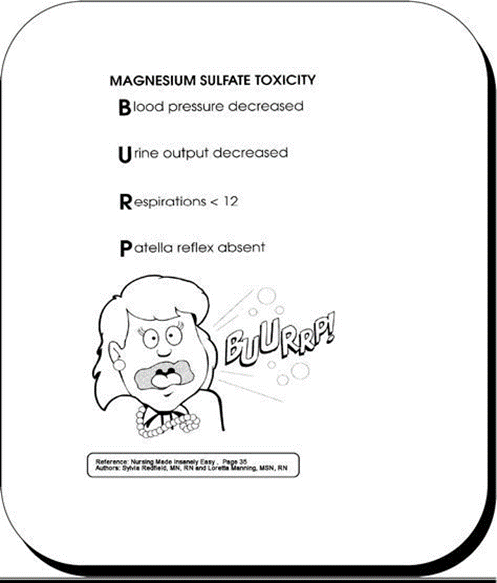A nurse is providing education to a client during the first prenatal visit. Which of the following statements by the client should indicate to the nurse a need for clarification?
"I should drink about 2 liters of fluid each day."
"I can have a moderate amount of caffeine daily."
"I should not drink alcoholic beverages during my pregnancy."
"I should increase my calcium intake to 1,500 milligrams per day."
The Correct Answer is D
Explanation:
A. "I should drink about 2 liters of fluid each day."
This statement is generally accurate and aligned with recommendations for adequate hydration during pregnancy. The recommended daily fluid intake for pregnant individuals is typically around 8 to 10 cups of fluids per day, which is approximately 2 liters. Adequate hydration is important during pregnancy to support overall health, prevent dehydration, and maintain proper functioning of bodily systems.
B. "I can have a moderate amount of caffeine daily."
This statement is generally acceptable and aligned with guidelines from organizations such as the American College of Obstetricians and Gynecologists (ACOG). Moderate caffeine intake, typically defined as up to 200 milligrams per day, is considered safe during pregnancy for most individuals. However, it's essential to be mindful of caffeine sources and consume them in moderation, as excessive caffeine intake can have adverse effects on pregnancy outcomes.
C. "I should not drink alcoholic beverages during my pregnancy."
This statement is correct and crucial for a healthy pregnancy. Alcohol consumption during pregnancy is associated with various risks, including fetal alcohol spectrum disorders (FASDs) and developmental issues. Therefore, healthcare providers universally recommend abstaining from alcohol entirely during pregnancy to protect the health and well-being of both the mother and the developing baby.
D. "I should increase my calcium intake to 1,500 milligrams per day."
This statement indicates a need for clarification because the recommended daily intake of calcium during pregnancy is typically around 1,000 milligrams per day for most pregnant individuals. While some healthcare providers may recommend slightly higher amounts, such as up to 1,300 milligrams per day, a calcium intake of 1,500 milligrams per day is relatively high and may not align with standard recommendations without specific indications such as a history of low calcium levels or certain medical conditions. It's important for the nurse to clarify and provide accurate information regarding appropriate calcium intake during pregnancy based on the client's individual needs.
Nursing Test Bank
Naxlex Comprehensive Predictor Exams
Related Questions
Correct Answer is D
Explanation
Explanation:
A. Drowsiness: Mild drowsiness is a common side effect of magnesium sulfate therapy and is not necessarily indicative of toxicity. However, severe drowsiness or lethargy can be a sign of magnesium toxicity and should be reported to the provider.
B. Facial flushing: Facial flushing is a common side effect of magnesium sulfate administration and is generally not a sign of toxicity. It is often accompanied by warmth and redness of the skin but is not considered a serious adverse reaction.
C. Nausea: Nausea is another common side effect of magnesium sulfate therapy and is usually mild and transient. It is not typically indicative of toxicity unless it is severe and persistent.
D. Respiratory depression: Respiratory depression is a critical sign of magnesium toxicity. Excessive levels of magnesium can affect neuromuscular function, leading to respiratory muscle weakness and depression. This can result in shallow or slowed breathing, decreased oxygenation, and potential respiratory failure. Respiratory depression is a serious complication that requires immediate intervention, and the nurse should report it to the provider promptly.

Correct Answer is B
Explanation
Explanation:
A. "I know I am at increased risk to develop type 2 diabetes."
This statement indicates an understanding of the increased risk for developing type 2 diabetes after experiencing gestational diabetes. It shows awareness of the long-term implications and the importance of ongoing monitoring and lifestyle management.
B. "I will reduce my exercise schedule to 3 days a week."
This statement is concerning because regular exercise is an essential component of managing gestational diabetes. Exercise helps control blood sugar levels, improves insulin sensitivity, and promotes overall health during pregnancy. The client should not reduce their exercise schedule unless advised by their healthcare provider for specific reasons.
C. "I will take my glyburide daily with breakfast."
Glyburide is an oral medication used to help control blood sugar levels in some cases of gestational diabetes. Taking it with breakfast can help optimize its effectiveness. This statement indicates an understanding of medication management.
D. "I should limit my carbohydrates to 50% of caloric intake."
Limiting carbohydrates is often a key part of managing gestational diabetes, as it can help control blood sugar levels. However, the specific percentage of carbohydrate intake may vary based on individual factors and should be determined in consultation with a healthcare provider or registered dietitian.
Whether you are a student looking to ace your exams or a practicing nurse seeking to enhance your expertise , our nursing education contents will empower you with the confidence and competence to make a difference in the lives of patients and become a respected leader in the healthcare field.
Visit Naxlex, invest in your future and unlock endless possibilities with our unparalleled nursing education contents today
Report Wrong Answer on the Current Question
Do you disagree with the answer? If yes, what is your expected answer? Explain.
Kindly be descriptive with the issue you are facing.
